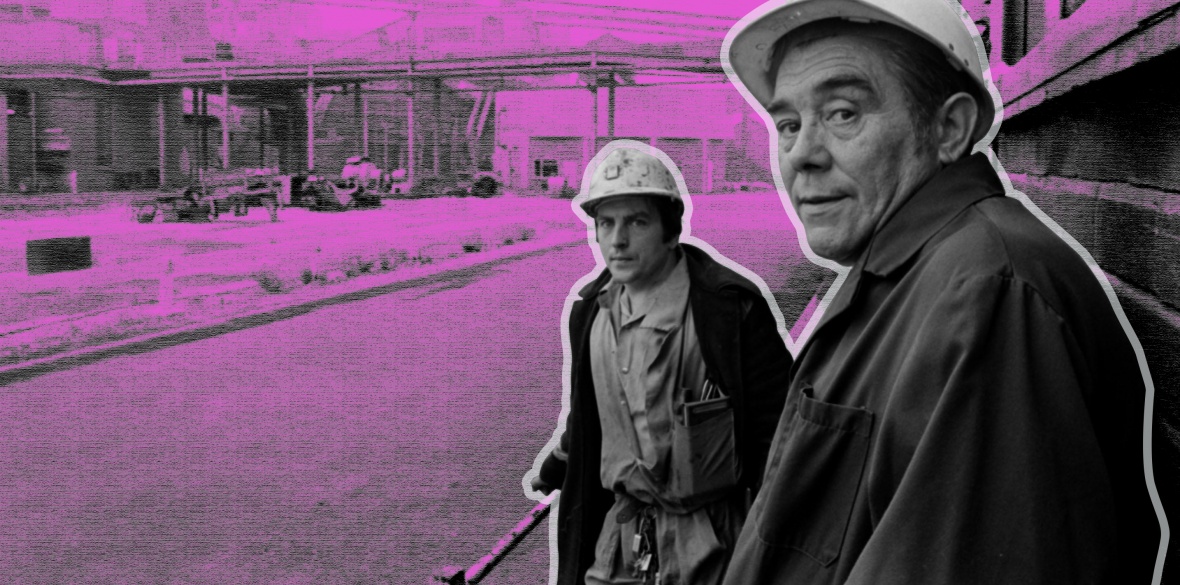This is the last article you can read this month
You can read more article this month
You can read more articles this month
Sorry your limit is up for this month
Reset on:
Please help support the Morning Star by subscribing here
WHILE the NUM has a long history, playing its part in gaining improvements in safety, terms and conditions for its members, it has also had to contend with what is nothing short of acts of industrial vandalism by successive Tory governments.
While many believe pit closures were a result of the 1984-85 strike, I believe it was also a retaliation for the successful strikes of 1972 and 1974.
There are many examples of how the coalmining industry and the people who worked in it have been victimised, and the circumstances prevailing at the time manipulated to bring about the demise of the industry and decimation of our mining communities.
One example which is relevant today is how the government has manipulated its response to the climate change issue.
Over 15 years ago the NUM was advocating the use of carbon capture and storage as a way to decarbonise the burning of coal for power generation which would reduce our nation’s carbon emissions.
The government said it was unproven and expensive, choosing instead to opt for wind power.
This policy was the final nail in the coffin of the coal industry and the fact that the government now sees carbon capture and storage as a viable and essential technology to enable the continued burning of gas for electricity is the final insult.
While the NUM continues to have a traditional trade union role in representing its remaining members, there is a lot more focus on assisting former members and their families.
The NUM continues to assist former members and their families in accessing the compensation they are entitled to for injuries and diseases they suffer because of their employment in the mining industry.
Diseases such as pneumoconiosis continue to destroy the lives of the workers who provided the nation’s energy.
While the service we offer is far from perfect and unfortunately not uniform throughout the former mining areas, we continue to do what we can for who we can and have a positive influence on people’s lives.
There is also a recognition within the NUM that we need to protect and preserve our history for future generations.
The Durham Area of the NUM is a good example of this in the way it has preserved the tradition of the Durham Gala, the Big Meeting, a fantastic trade union and socialist event.
The work they have done to ensure a future for the Durham Area Offices Redhills, affectionately called the pitmen’s parliament, is vitally important for the preservation of our history and our culture.
It is right that these buildings and events are preserved as they are a part not only of the history of the NUM but of society in general.
Durham miners pioneered the founding of social care decades before it was introduced after the 1945 election of a Labour government.
By looking to what happened in the past we can work towards a better future and avoid repeating previous mistakes.
This is something that the remaining Areas of the NUM are working towards.
The NUM continues to support campaigns for justice and fairness, an inquiry into what happened at Orgreave and on picket lines up and down the country in 1984-5.
We want fair arrangements in respect of the split of future surpluses from the Mineworkers Pension Scheme (MPS).
When the industry was privatised in 1994 the Tory government agreed to underwrite any future losses suffered by the scheme, in return for a 50 per cent share of the surpluses when there were any.
Since then there have been no losses, and the Treasury has creamed off around £10 billion from our pensions.
At the same time some former mineworkers receive a pension of less than £20 a week.
We want to see a split that will see pensioners and their families benefiting from the investment returns on the money they paid into the scheme.
We also want a fair system where former mineworkers no longer need assistance to claim the compensation they are entitled to for life-changing conditions they are suffering from as a result of working in the nation’s coalmines.
There are other campaigns. They include the LS26 campaign in Leeds where residents in Oulton are fighting plans by a developer to evict then from their homes in order to redevelop their former pit estate.
The 70 or so houses used to be miners’ homes, owned by the National Coal Board.
Privatisation saw them handed to the private sector. Some former miners still live there.
Now they are owned by a private developer who wants to evict the residents, demolish the house and build an estate of luxury homes which the residents could never afford.
What a classic case of putting profit before people!
But people are banding together to oppose the redevelopment of the estate and save not just their own homes but protect them for future generations as affordable homes.
The NUM is supporting them. The Morning Star has taken their campaign to a wider audience.
The NUM will continue to exist for as long as it is required to assist former members and preserve our history and the many benefits that the industry gave to former mining communities.
The past we inherit, the future we build. We are stronger together.












